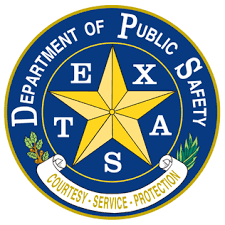In Case You Missed It
 AUSTIN – On March 4, the Washington Post Magazine published an article showcasing the Texas Department of Public Safety (DPS) Interdiction for Protection of Children (IPC) Program and nationwide efforts to battle human trafficking and child exploitation. The in-depth article, Patrol Officers are Trained to Spot Drunken Driving and Drug Trafficking. Why Not Child Trafficking, Too?, traces the origins of the IPC program and its continued growth across the nation.
AUSTIN – On March 4, the Washington Post Magazine published an article showcasing the Texas Department of Public Safety (DPS) Interdiction for Protection of Children (IPC) Program and nationwide efforts to battle human trafficking and child exploitation. The in-depth article, Patrol Officers are Trained to Spot Drunken Driving and Drug Trafficking. Why Not Child Trafficking, Too?, traces the origins of the IPC program and its continued growth across the nation.
The IPC program was implemented in Texas in 2009 to teach law enforcement officers how to recognize indicators of at-risk and endangered children who don’t necessarily exhibit obvious signs of abuse. As a result of receiving this specialized and targeted training, law enforcement officers can more readily identify and rescue children, and arrest suspects. The training is now standard for Texas Highway Patrol Troopers.
“Children who go missing, who are abused or at-risk of being abused don’t always make an outcry for help when they encounter an officer,” said DPS Director Steven McCraw. “Knowing that offenders are likely to travel with their victims, this program helps protect children – our most vulnerable population – as well as capture the deplorable criminals who prey on them.”
Since the program’s inception, this training has resulted in DPS rescuing 348 children and initiating 158 criminal investigations, including criminal activity involving sexual assault of a child, possession of child pornography, sex offender non-compliance and human trafficking. DPS Victim Services counselors have also provided emotional support and referrals for other resources to hundreds of rescued children and family members.
DPS partners with various law enforcement, victim services and child protective services agencies to provide IPC training. To date, DPS has provided IPC training to its own officers as well as more than 7,819 other law enforcement and child protective service professionals in Texas, across the country, and internationally. This specialized training has also assisted other agencies in implementing similar programs within their own jurisdictions.
“We are grateful that the IPC program continues to receive support from our state leaders as well as many partner agencies,” said Director McCraw. “The demand for this program demonstrates its value and potential, and our hope is that one day this type of training will be standard for law enforcement everywhere.”

